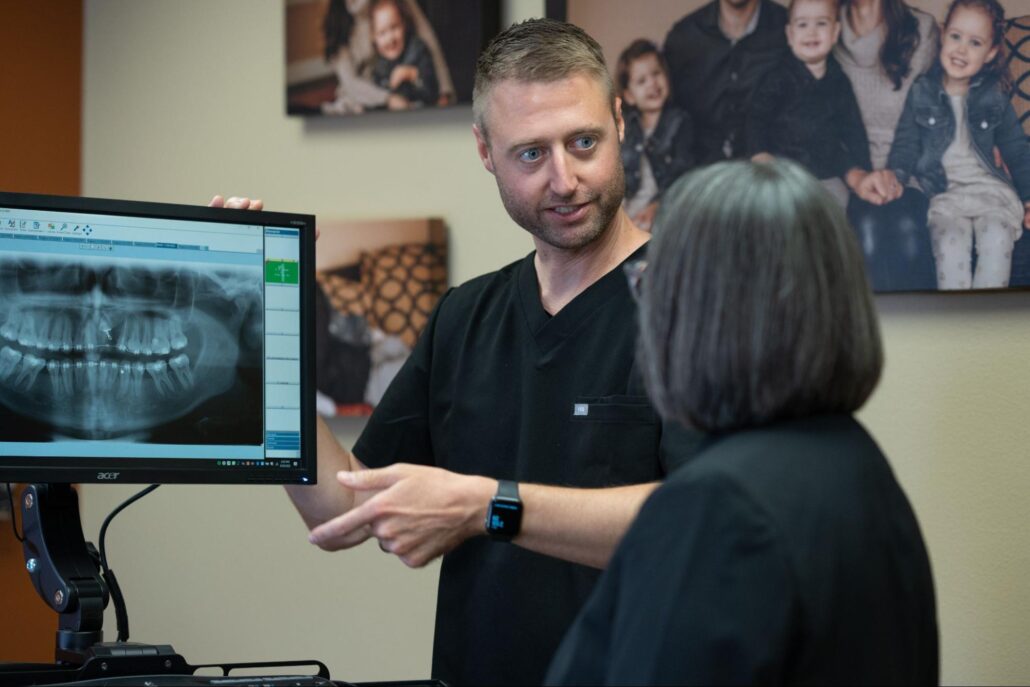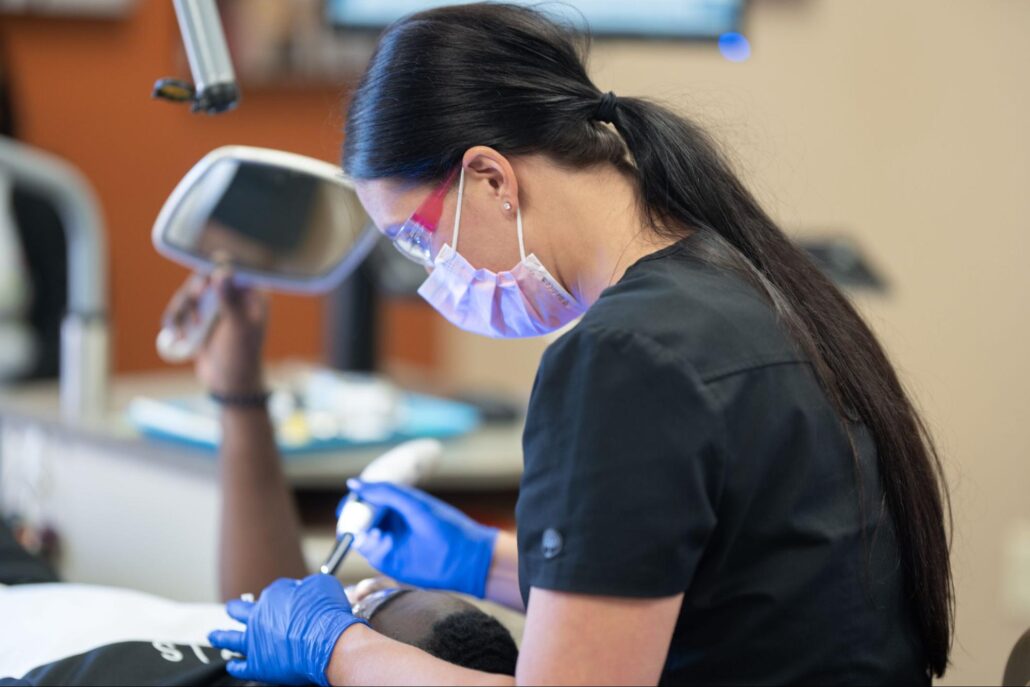Believe it or not, your bite is a key indicator of your dental health. One of the most common reasons patients seek orthodontic treatment is to correct bite issues that could cause difficulty chewing, speaking, or even breathing. But what is a malocclusion? We’re happy you asked. Keep reading to learn how misalignment can affect your bite and how we can help give you the straight smile you deserve.
What is Malocclusion?
A malocclusion is a medical term that refers to the misalignment of the upper and lower teeth, causing an irregular bite and crooked teeth. Though often hereditary, there are environmental factors that put a person at risk of malocclusion, including prolonged thumb-sucking, bottle feeding, or pacifier use in childhood, teeth grinding, and jaw injury. Additionally, crowding and spacing of teeth can also lead to malocclusions.
Children and adults with orthodontic misalignment may exhibit any of the following bite irregularities:
Underbite
An underbite occurs when the teeth on the lower jaw extend past the teeth on the upper jaw. If left untreated, this condition can cause tooth chipping, bad breath, difficulty speaking and chewing, and breathing issues.
Overbite
An overbite is when the upper teeth protrude over the lower teeth, creating a noticeable overlap. Left untreated, an overbite can lead to speech and chewing problems, tooth decay, gum disease, and temporomandibular disorders (TMD).
Tooth Spacing
Tooth spacing is characterized by gaps between the teeth, often due to genetics or smaller tooth size. Individuals with spaced teeth are more at risk of tooth decay, chipping, and gum issues.
Tooth Crowding
Tooth crowding occurs when teeth grow in a crooked, overlapping manner, often due to a smaller jawbone or narrow palate. This condition can lead to difficulty cleaning teeth properly, increasing the risk of dental complications.

What Are the Symptoms of Bite Problems?
Early identification of bite problems can help prevent more serious issues later on. Be aware of the following symptoms:
Discomfort with Chewing
If you experience discomfort while eating, it may be a sign of a bad bite. Consulting Dr. Feil’s team at Feil Orthodontics can help with early prevention of orthodontic misalignment.
Difficulty Speaking
Orthodontic misalignment can contribute to speech difficulties. If you or your child has trouble pronouncing certain sounds, it might be related to dental issues.
Breathing Issues
Breathing through the mouth can be a sign of orthodontic misalignment. In children, this habit can lead to facial structure changes and respiratory complications.
How We Treat Malocclusions
From underbites to crowded teeth, Dr. Feil and his team are dedicated to addressing orthodontic misalignments. We offer the following treatment options:
Metal Braces
Metal braces are orthodontic devices made of stainless steel bands and brackets, cemented to teeth and connected by arch wires. They are designed to straighten teeth and correct alignment over time. This tried-and-true orthodontic treatment is a great way to correct mild to severe misalignment.
Clear Braces
Made from transparent or tooth-colored materials, clear braces offer a less noticeable alternative to traditional metal braces while effectively straightening teeth and correcting alignment issues.
Clear Aligners
If you prefer a more discreet option, clear aligners are a great choice. Using plastic trays designed to fit the unique contours of your mouth, clear aligners are a comfortable, removable treatment option.

The Importance of Correcting Misalignment
If left untreated, malocclusions can lead to a variety of complications that go beyond the appearance of your smile. Here are some reasons why it’s essential to address these issues:
Preventing Tooth Decay and Gum Disease
Misaligned teeth can create hard-to-reach areas in your mouth where plaque and food particles can accumulate, increasing the risk of tooth decay and gum disease. By correcting alignment issues, you can maintain better oral hygiene and prevent these problems.
Enhancing Speech and Chewing
Properly aligned teeth are crucial for clear speech and effective chewing. Orthodontic treatment can help improve these functions, making daily activities more comfortable and enjoyable.
Reducing the Risk of Injury
Protruding teeth, such as those seen in cases of severe overbite, are more susceptible to injury. Correcting the alignment of these teeth can help protect them from damage during activities and accidents.
Improving Overall Oral Health
A properly aligned bite can reduce the wear and tear on your teeth, preventing issues such as tooth erosion and jaw pain. This can lead to better long-term oral health and overall well-being.

Take the First Step Towards a Healthier Smile
If you’re experiencing any of the symptoms of orthodontic misalignment or simply want to improve the appearance of your smile, Feil Orthodontics is here to help. Our team of experienced professionals is dedicated to providing personalized care and effective treatment options tailored to your needs.
Taking the first step towards a healthier, more confident smile is easy. Schedule a free consultation at either of our offices in Beulah, Mandan or Bismarck to discuss your concerns and explore the best treatment options for you.

